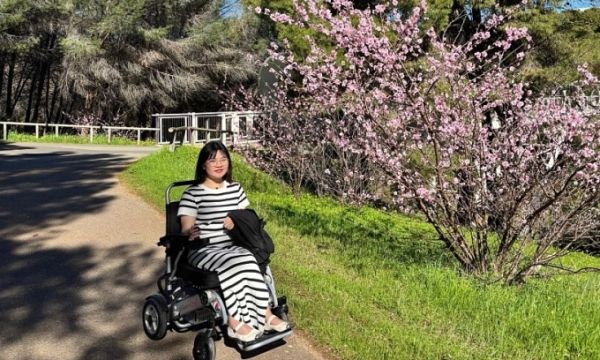
The 49-year-old Vietnamese in Brussels, Belgium, was told the cyst was benign and safe to leave untreated for months.
Mai moved to Belgium in 2005 after getting married. She only noticed the glacial pace of the European healthcare system when she was diagnosed with the cyst a year later.
She said every procedure, from routine check-ups to surgery, required appointments with waits ranging from months to years. Only emergencies were treated immediately.
She said requesting to see a doctor sooner costs twice as much. A regular visit costs about US$30, while a private or after-hours appointment tops US$60. Since her insurance did not cover the extra fees, she decided to wait.
Her experience is common for Vietnamese living overseas, where long waits are standard. Some get medicines from Vietnam to treat themselves as most drugs are easy to buy, while in Belgium many require a prescription.
A 2023 BioMed Central report found 70% of immigrants in Europe, primarily Asians, faced challenges and culture shock when seeking healthcare.
A 2025 Oxford Academic study found 22% of immigrants encountered at least one barrier to healthcare in Europe.
The U.S. has similar problems. A report by U.S. health policy organization Kaiser Family Foundation and the Los Angeles Times newspaper said 84% of immigrants, including Vietnamese-Americans, were shocked and frustrated by U.S. healthcare costs and procedures.
Research by Dr. Huynh Wynn Tran, CEO of Wynn Medical Center Clinics in California, showed 50-60% of immigrants were confused when first navigating the U.S. healthcare system.
He was himself shocked when he first arrived in the U.S. in 1999, he said.
Patients had to book appointments by phone or online, submit insurance details, and pick doctors within the network. He once had to wait three to four weeks to be seen by a family doctor, who was a former student of his.
In Vietnam, patients can visit hospitals or clinics, wait in line, and see a doctor the same day.
Tran said he used to travel from Bac Lieu to HCMC for check-ups without making appointments.
For Vietnamese living abroad, this is a major adjustment to make. It often takes weeks to see a family doctor and months to see a specialist. In the case of certain specialties, the wait can reach six months.
|
Tuyet Nhung, a Vietnamese student with disability, in Australia in Aug. 2025. Photo courtesy of Tuyet Nhung |
The U.S. health insurance system adds to the challenge with its bewildering terms: managed health is insurance that controls medical costs and services, a deductible is the amount patients must pay before insurance covers expenses, prior authorization means approval is required beforehand from the insurer for availing certain services.
Patients can end up with large medical bills if they do not do doctoral-level research first.
Family doctors are the first point of contact in the U.S. healthcare system. They handle all basic care and referrals to specialists. The system is built on tiered care and regulating expenses through insurance, unlike Vietnam’s faster and more direct approach.
Tran recalled meeting a Vietnamese patient who went to a clinic with chest pain. After an examination, the family doctor referred the patient to a gastroenterologist. Worried it was a heart or lung problem, the patient asked to see a specialist but was refused in the absence of a referral.
“What keeps people from getting the care they need is not the gap in medical skill but differences in culture and healthcare systems,” Tran said.
He advises Vietnamese-Americans to research their local insurance system, know which doctors are in-network, and learn how to book appointments online.
He said patients should ask questions, get regular check-ups even without symptoms, keep their insurance active, take their insurance card during visits, and learn basic English medical terms to describe symptoms.
He recommended translating old medical records into English to help doctors avoid unnecessary tests. Some tests done in Vietnam may need to be repeated to meet European standards.
He said patients should also know that family doctors manage and coordinate all healthcare services.
“Expect slower procedures, but the system is safer and more organized.”